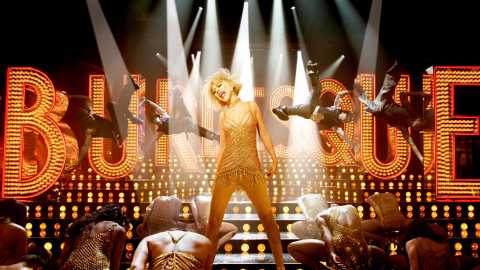Dr. Lucky: Why Hollywood’s “Burlesque” Is a Sham

Burlesque has been creeping into mainstream American culture for the past decade, and tomorrow it gets the Hollywood treatment. “Burlesque,” starring Christina Aguilera and Cher, comes out on Thanksgiving, but—with a PG-13 rating and nary a pastie or G-string in sight—it departs from most current definitions of burlesque. Director Steven Antin defends his family-friendly film, saying that the notion of burlesque as a “second-rate striptease” is a misunderstanding of its 19th century roots. “I wanted to bring back what burlesque originally was,” he says.
But Dr. Lucky, one of New York’s preeminent burlesque performers (who also happens to have a Ph.D.), takes issue with that statement. In her Big Think interview, she tells us that burlesque has gone through many iterations since coming to America from Europe in 1868, and you can’t call any of these versions more authentic than the other. “The fact that he’s saying, this is ‘original burlesque,’ and I’m not going to have any g-strings or pasties like they do in burlesque now because it’s tawdry, then … it just seems like picking and choosing what you want.” It is true that the art form did not become associated with the striptease until the 1920s, but if he really wanted to show “original” 19th century burlesque, he would have to do a parody of a classical text, she says. “Back then, burlesque was all about social parody; it was about inverting the content of what was being produced…sort of like “Saturday Night Live” or Weird Al Yankovich.”
And one thing that has remained relatively constant about burlesque is that it has historically been a “working-class art form” focused on on satire and escapism. Trying to “class it up” by putting it in fancy nightclubs perverts its whole sensibility, she says. “That’s a nightclub performance—which is fine—but I don’t understand why people want to use the word burlesque.” But ultimately, if the film gets more people to come out to more performances, Dr. Lucky thinks that’s “awesome.”




